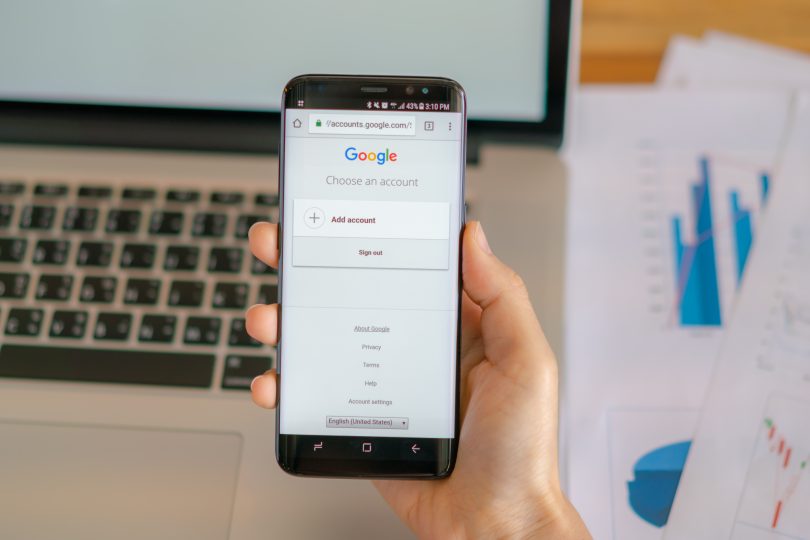Just because your business is small doesn’t mean you have to limit your aspirations to online success.
Even small businesses need big ideas, so keep reading to discover some smart solutions to kickstart your online presence.
Here’s a good analogy to use to conceptualise your new digital strategy. Imagine that your business is an event. You want to make this function really stand out. It’s got to be super special and appealing so that it attracts a huge amount of attention. All the different components have to be cohesive and compelling and the service has to be absolutely spot-on. When people attend the event, the reality has to live up to expectations and leave them feeling satisfied. The goal is for them to tell their friends how awesome it was and they’ll come back for more!
So now let’s look at some ways that your event (i.e. your new business) can grab the attention of web users and stand out in the crowded online space.
Create a website
You need to create a website for your new business.
We’re in the digital era and a website is your best marketing asset. Actually, it’s the only way that you can compete in the online marketplace. It allows you to engage with customers, providing them with a wealth of information about your business and its unique personality. It tells them about your products and services and it can also entertain them, provide them with solutions and answer their queries.
We’re not just talking about local customers who already know about your business. We’re talking about thousands of potential customers around the world.
WordPress is the most sophisticated website building tool in terms of functionality and generally best for Search Engine Optimisation (SEO). Wix and Squarespace are easier options for novices.
Quality counts
Don’t settle for less. Your digital strategy is critical to success, so aim high with your website design.
It really is about quality and you can always build as you go but a solid framework is essential. Choose your domain name carefully. Make sure it’s easy to remember, original and make sure you have a reliable hosting company, good tech support and a quality e-commerce platform if required.
Plan your strategy
It’s also important to have a plan. Knowledge is power, so it’s a good idea to find out as much as you can about the digital world, understand how things work and what tools and resources are available to you.
Here are some questions to get you started:
- Who’s my target audience?
- What are my key messages?
- What are the different ways I can engage with my target market?
- What strategies can I use to convert leads or site visitors into customers?
If you’re starting a new business, you’re probably being pulled in a hundred different directions with not enough hours in a day to get everything done. Nonetheless, you need to make digital marketing a priority.
Here are a few essential tools and tips for getting your new business up and running online. There are actually countless things that you can do to improve your online visibility and as time goes on you can add more layers to your strategy and explore these in greater depth.
Set up Google Analytics
You need to know if your marketing dollars are working for you. With Google’s free website tool, Google Analytics, you can get valuable insights about your website’s visitors which will help you to evaluate the performance of your digital strategy, highlight problems and unlock potential opportunities. Set-up Google Analytics as soon as you launch your website.
Plan your Search Engine Optimisation (SEO) strategy
No doubt you’ve done some searches on the internet and come away thinking, ‘What a lot of cr#p there is on the web!’ A solid SEO strategy will differentiate your website from the other fluff and poorly written content.
SEO is the umbrella term for a whole lot of practices which increase both the quality and quantity of website traffic and which boost your website’s ranking in search engine results. When you’re starting out getting your new business online, there are plenty of actions you can take to bump you up the rankings and get your website noticed by the right people.
SEO is as much about people as it is about search engines themselves. It’s about insights into people’s online searches. What are they looking for? What answers do they want? What words are they using? What type of content attracts and engages them? Knowing the answers to these questions will help your website connect to those people who are searching online for the products, services and/or solutions that your business offers.
Content is king when it comes to SEO.
Remember, your website is your shop window and first impressions really do count. As tempting as it may be to write your own website copy, it’s a job best left to the professionals.
Search engines such as Google value the quality of content over quantity and regular news or ‘blogs’ on your websites are a great way to improve your ranking.
Here are some important factors to consider regarding website content:
It’s about quality, not quantity
- Ask yourself what your customers’ problems or queries are, then use the blog post to provide answers and solutions.
- Publish new, original material regularly (at least once a month).
- All pages of your website should have a minimum of 300 words of high-quality content.
- Every page of your website needs to be unique.
- Use a good copywriter!
If you are keen to learn more about SEO, take a look at The SEO School which is launching soon.
Set up your Google My Business Listing
Google My Business is a very effective marketing tool from Google which helps businesses manage their online presence across the Google platform. Plus it’s free!
It’s really easy to set up and manage, but it’s important to ensure that all your information is accurate and consistent. It’s also important to keep things current on your Google My Business profile in order to keep close to your customers and boost your online presence.
You can do this by:
- Putting up regular posts, photos and videos
- Updating your trading hours when required
- Highlighting any changes to trading conditions (eg. how your business is responding to COVID-19)
- Asking customers for reviews on an ongoing basis
Pay and play with Google Ads
Paid searches can be a good option for generating traffic to your website and creating leads and sales opportunities. Understandably, the cost can be off-putting for a new small business but remember, you can always start small to see whether it’s a viable option. Once you’ve seen the benefits of Google Ads, you can always scale up.
Take the time to learn how to use the ‘expert mode’ of Google Ads. Google offers smart campaigns but in reality, some of these are not actually that smart. If you don’t know what you’re doing and don’t evaluate your results regularly, your Google Ads campaign could just end up showing ads for keywords that aren’t all that relevant.
Get Social
Social media is an essential element of your online marketing toolbox but it takes considerable time and effort to maintain a steady flow of quality content that is curated to suit the channel. So when you’re starting out, focus your content strategy on one or two key channels that are popular with your audience.
Your choice of social media channel will depend on the industry you’re in and doesn’t necessarily have to be a mainstream one. It depends on where you’re most likely to connect with potential customers and like-minded people.
That said, a business profile on Facebook is probably a must-have. You could also consider others such as Twitter, Instagram, Linkedin, Snapchat, Pinterest and YouTube.
It can seem a bit daunting getting your new business online, but if you take the time to develop a plan (and then stick to it!), you’ll soon find your way around. Of course, your brand message has to be consistent across all channels, not only social media, and the more effort you put into implementing your strategy, the more you’ll get out.
“The opinions expressed by BizWitty Contributors are their own, not those of BizCover and should not be relied upon in place of appropriate professional advice. Please read our full disclaimer."







